Boris Nemtsov: A charismatic figure and fierce critic of Putin
- Published
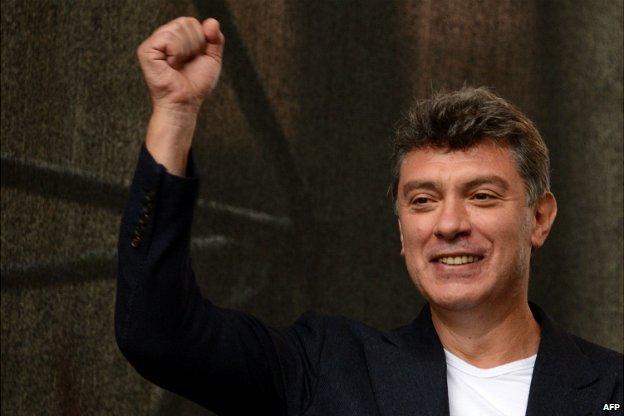
Boris Nemtsov was seen by many in the 1990s as a possible future Russian president
Boris Nemtsov, who has been shot dead in Moscow at the age of 55, was a charismatic figure within Russian politics, a liberal reformer who rose to prominence under Boris Yeltsin and became a fierce critic of Vladimir Putin.
He was also a nuclear scientist, environmentalist, and father of four.
Nemtsov founded a number of opposition movements after leaving the Russian parliament in 2003 and he had served as the co-chair of the opposition Republican Party of Russia - People's Freedom Party since 2012.
He was a prominent and vocal critic of Mr Putin, denouncing him for Russia's part in the Ukraine crisis, its worsening economic situation, and the alleged corruption surrounding preparations for the Sochi Olympic Games in 2014.
Nemtsov was also a leading member of liberal movement Solidarnost. Along with fellow opposition figures Alexei Navalny and Garry Kasparov, a former chess grandmaster, Nemtsov played a prominent part in the large-scale opposition marches in Moscow that followed Russia's controversial 2011 election.
He was arrested for taking part in the protests and was detained in late 2011 for 15 days.
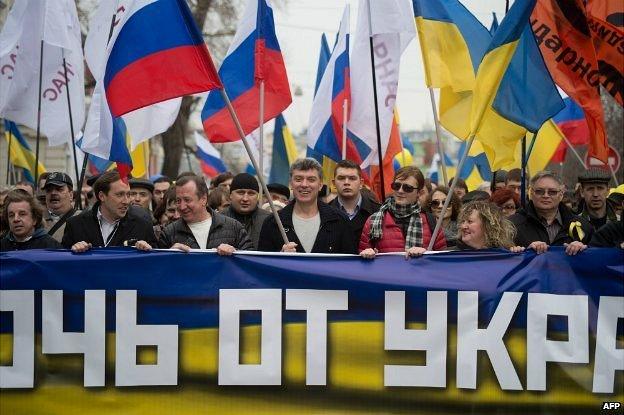
Nemtsov, centre, became a vocal critic of Mr Putin's actions in Ukraine after Russia annexed Crimea
Despite being a prominent opposition member, he did not always see eye-to-eye with Russia's fractured liberal opposition. In 2011, recordings emerged of him calling opposition supporters "hamsters" and "scared penguins" - but his minor transgressions did not cause major rifts.
Possible president
Nemtsov first ran for office in 1989, unsuccessfully, before eventually being elected to Russia's parliament in 1990. He stood by Boris Yeltsin when attacks came on his presidency in 1991 and Yeltsin rewarded his loyalty with the post of regional governor of Nizhny Novgorod.
He was young and eloquent, fluent in English, and media-savvy, and Nizhny Novgorod, bristling with military industries, became a showcase for foreign investment in Russia.
Nemtsov quickly became one of Russia's most prominent politicians, and observers speculated that Yeltsin was grooming the young regional governor as his successor.
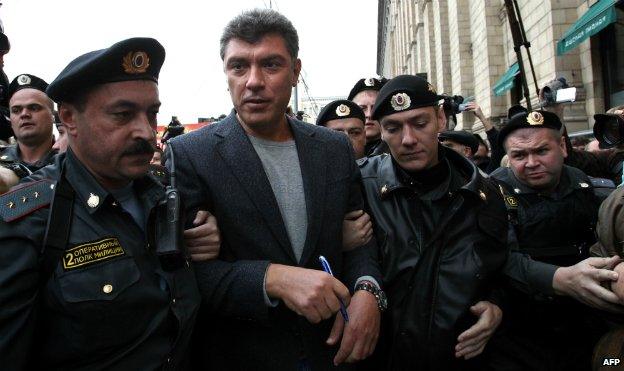
He was regularly detained by Russian police during opposition rallies after the 2011 election
In 1997, Yeltsin made him deputy prime minister in charge of economic reform. But Nemtsov came to regret the move, which heralded the beginning of his political decline.
Any presidential ambitions came to an end with the August 1998 economic crisis, which also cost him his job in government.
Political decline
In 1999, Nemtsov founded the Union of Right Forces (SPS), along with fellow liberals Anatoly Chubais and Yegor Gaidar. Initially the party seemed moderately successful, gaining about 10% in the election that December and forming an influential faction in the Russian parliament.
But in the next few years the SPS attitude to Russia's new President, Vladimir Putin, evolved from conditional support to open opposition - and the party lost supporters.
In the 2003 election, the SPS failed to reach the 5% threshold needed to enter parliament. Nemtsov resigned as SPS leader and pursued a business career, while making futile attempts to reunite Russian liberals, left in total disarray by the election catastrophe.
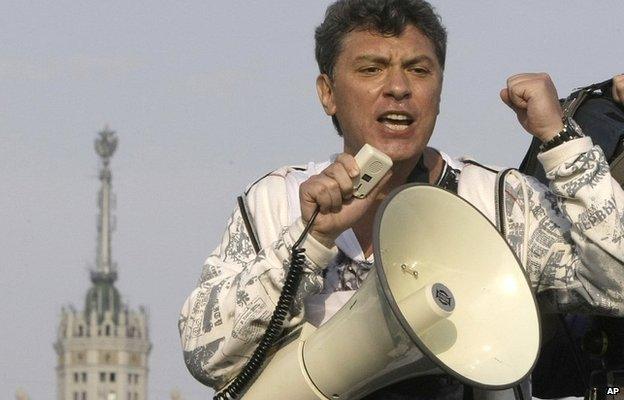
Nemtsov was no longer considered a prominent member of Russia's opposition movement
He became a prominent face of the opposition once again in 2011, but he had fallen out of the limelight over the past few years.
Still, although he was no longer considered part of mainstream politics in Russia, his killing has shocked many across the country. An opposition rally planned for Sunday is still set to go ahead, but Nemtsov's death will undoubtedly be seen as a warning to Mr Putin's critics.
Mr Kasparov said bloodshed was inevitable in President Putin's "atmosphere of hatred and violence". The message is clear, he added: "Oppose Putin and your life is worth little."
- Published28 February 2015
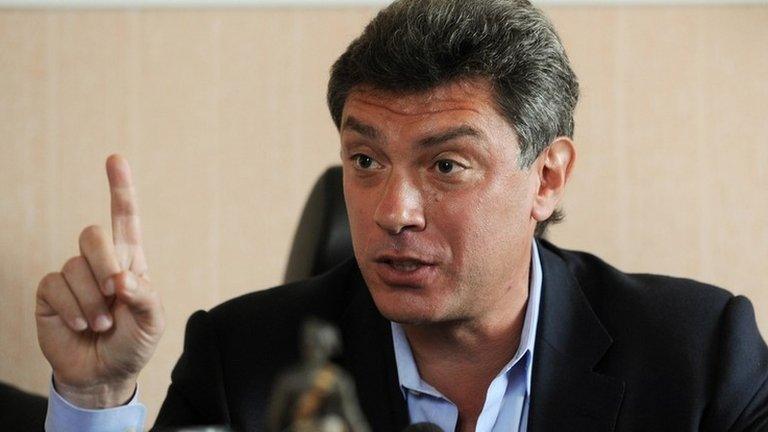
- Published28 February 2015
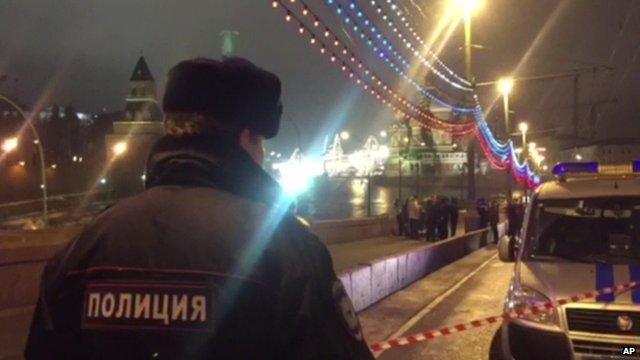
- Published25 March 2024
